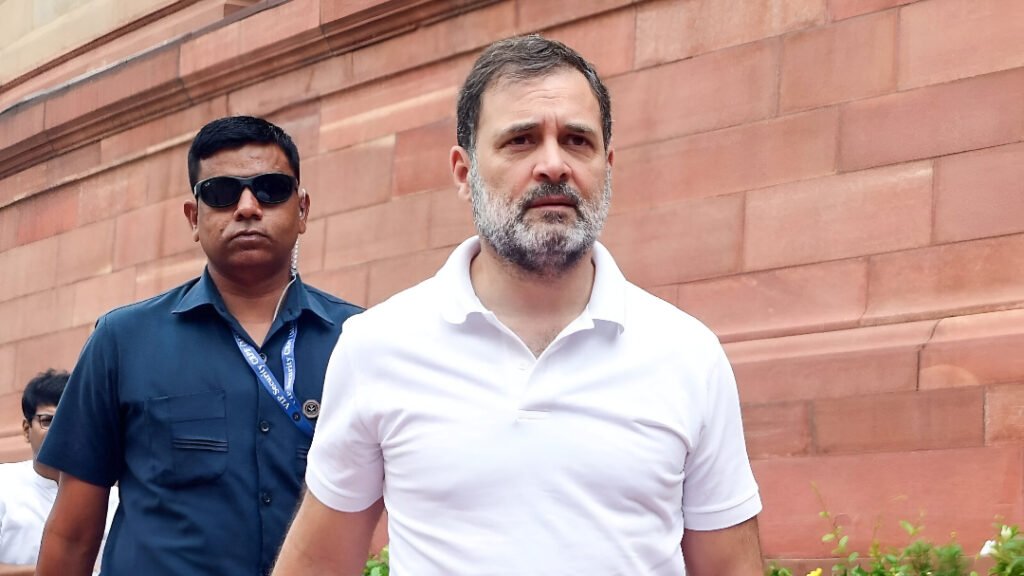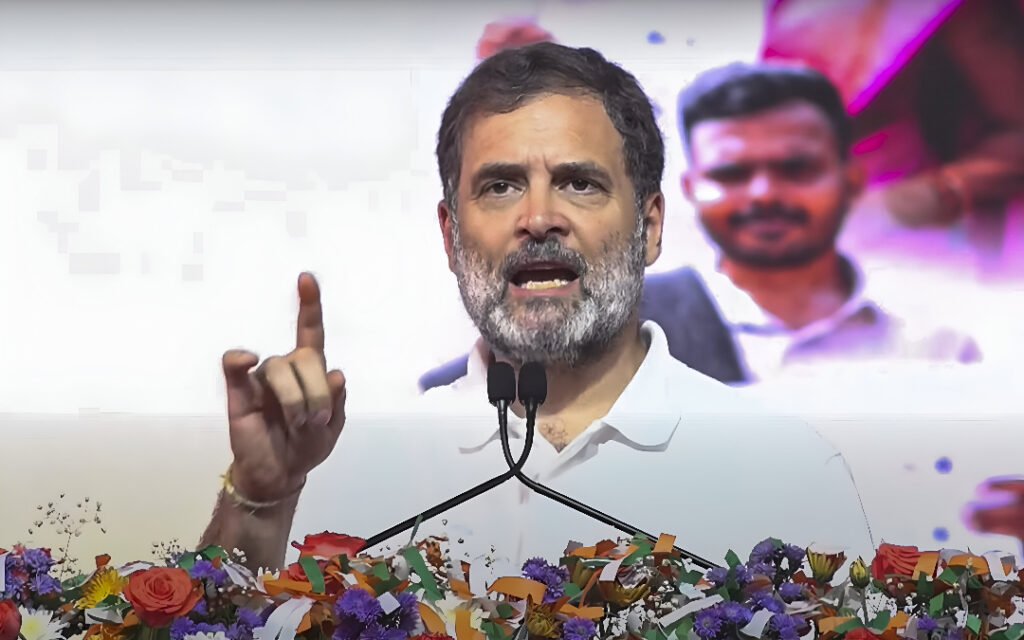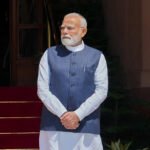Congress leader Rahul Gandhi told supporters in Patna on Sept. 1 that his party will soon unveil a “hydrogen bomb” of revelations on alleged “vote chori” (vote theft), prompting an immediate and sharp rebuttal from the Bharatiya Janata Party (BJP), which called the rhetoric “confusing” and irresponsible.

Why it matters
The remark escalates a months-long confrontation between the opposition and the Election Commission/BJP over electoral-roll revisions in Bihar. By invoking dramatic metaphors—first an “atom bomb,” now a “hydrogen bomb”—Rahul has raised expectations for explosive evidence while giving the BJP and the EC fresh political and legal avenues to demand proof, push back, and shape public perception in the run-up to state polls.
What Rahul actually said—the “hydrogen bomb” line
At the concluding rally of his Voter Adhikar Yatra, Rahul repeated his charge that voters’ names were being tampered with and told the crowd Congress would disclose a game-changing exposé: “I have shown the atom bomb earlier. Now there is something bigger—the hydrogen bomb. After that, Prime Minister Modi will not be able to show his face,” he declared, according to press reports. The framing was intentionally theatrical, designed to keep media attention on the “vote chori” narrative.
BJP pushback—‘confused’, demand proof and apologies
BJP leaders reacted sharply. The party’s information and social media chiefs have repeatedly dismissed Rahul’s earlier “atom bomb” presentation as unconvincing; the new “hydrogen bomb” line drew fresh ridicule and a demand for immediate evidence. Senior BJP figures called the language irresponsible and “confusing,” arguing that such explosive language undermines democratic discourse and could incite unrest. Union ministers and state units urged the Congress to either present hard proof or retract the allegation.

Election Commission and institutional pressure
The Election Commission has already pushed back on Rahul’s claims in recent weeks, asking him to either sign a legal declaration backing his allegations or apologize, and flagging privacy concerns after some voter photos were circulated. The EC has said it will act on verified complaints but rejected broad allegations without formal evidence. That institutional rebuke gives the BJP legal and moral cover to demand that Congress substantiate its “bomb” metaphor with admissible material.
Why the rhetoric matters strategically
There are three immediate stakes:(1) political theater—high drama keeps headlines rolling and mobilizes supporters; (2) legal exposure—unproven accusations invite defamation or contempt counter-moves and can shift the battle into courts and the EC; (3) electoral messaging—the BJP can use the rhetoric to portray Rahul as sensationalist and distract from issues the opposition wants to highlight. Analysts say Rahul’s metaphor risks backfiring unless paired with credible documentation.
Timeline & background—from “atom bomb” to “hydrogen bomb”
Rahul first used the “atom bomb” metaphor in early August when he presented what Congress called a dossier alleging large-scale manipulation tied to voter lists; the EC and several independent parties disputed the material’s accuracy. Since then, the party has been running the Voter Adhikar Yatra across Bihar, culminating in Monday’s Patna rally, where Rahul escalated his language to promise a larger revelation. The BJP’s sustained pushback has included social media campaigns and legal notices.

What’s next—verification, EC action, and political fallout?
- Verification window: The Congress will face intense calls from institutions and opponents to file formal evidence with the EC or police. Failure to do so could reduce the claim to a rhetorical device.
- Possible legal moves: BJP lawyers and the EC may seek affidavits, file complaints over misuse of data, or ask courts to compel proof or impose sanctions if allegations are found baseless.
- Campaign optics: Expect the BJP to exploit the “hydrogen bomb” line in ads and rallies to paint the opposition as destabilizing; Congress will use suspense to maintain momentum among its base until a reveal is staged.
Attribution & sources
According to reporting by NDTV, PTI, Times of India, New Indian Express, and Moneycontrol, Rahul Gandhi told supporters a “hydrogen bomb” of revelations on alleged “vote chori” was imminent at the Voter Adhikar Yatra’s Patna finale; BJP leaders dismissed the rhetoric as confusing and demanded evidence, while the Election Commission urged formal, verifiable submissions rather than sensational claims.
Conclusion
Rahul Gandhi’s shift from “atom bomb” to “hydrogen bomb” turns the vote-fraud narrative into a high-stakes gamble. The tactic keeps the opposition’s allegations in the headlines but also hands the BJP and the Election Commission an opening to demand proof, press legal remedies, and frame the Congress as theatrically irresponsible if it cannot substantiate its claims. As Delhi watches, the next 48–72 hours will be decisive—either a dossier appears that changes the conversation, or the metaphor loses force and the political advantage slips to the ruling party.











